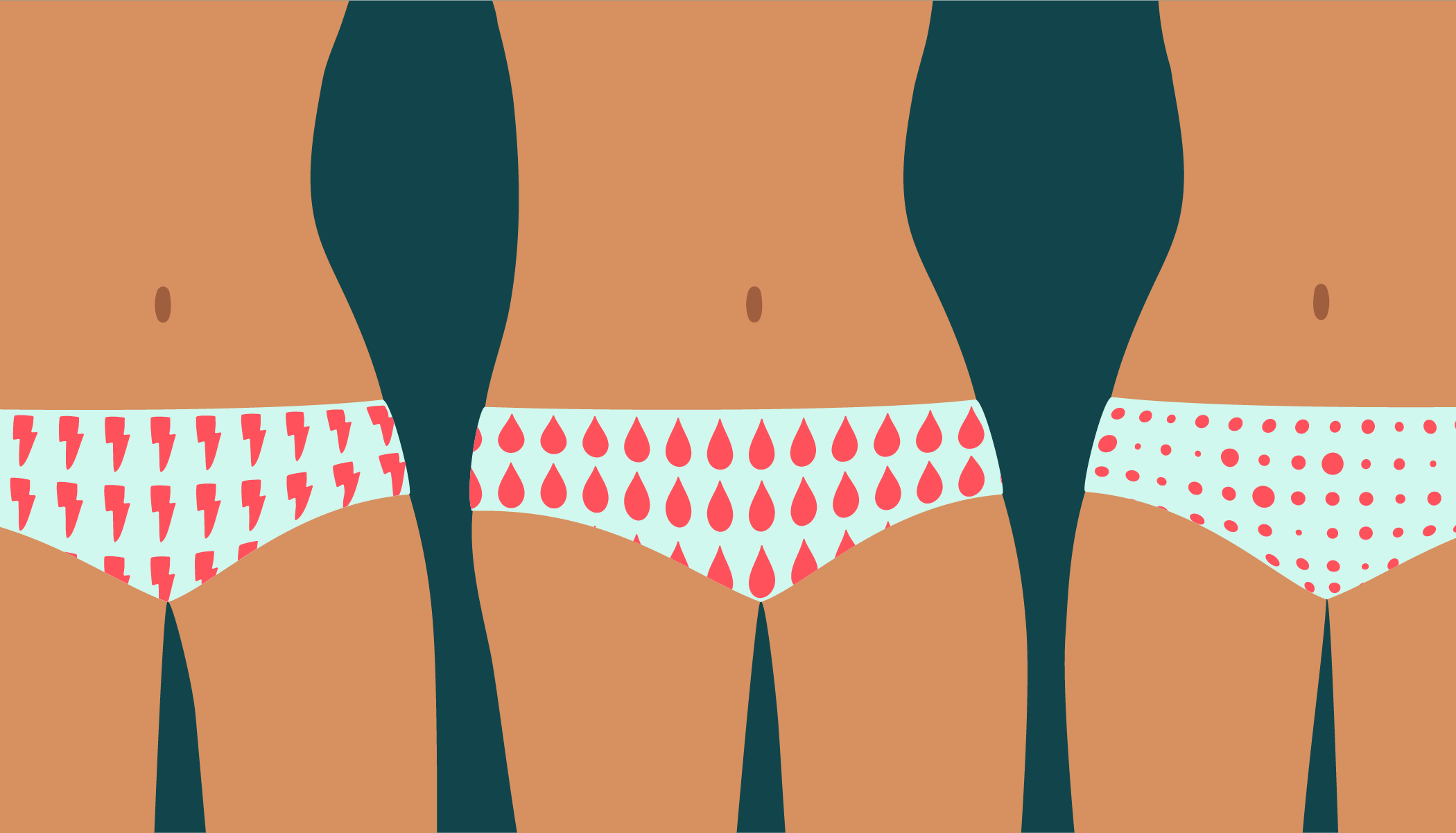Hot flushes, night sweats, mood swings and troubles with sleeping are common symptoms of menopause. But these symptoms, among others, may actually start well before you’ve reached menopause.
What is perimenopause?
Perimenopause marks the first changes you experience when your hormone levels shift.
‘Menopause itself is defined as exactly 12 months after your last menstrual bleed’ says Dr Elisabeth Rosen, a Livi doctor specialising in gynaecology and obstetrics. ‘Perimenopause, on the other hand, varies hugely from person to person.’
The average age of perimenopause is 47.5 years, but it’s different for everyone. ‘Some people will experience symptoms for a couple of years before their periods stop altogether, but some will have them for a decade.’
How do I know if I’ve started perimenopause?
‘One of the first signs of perimenopause people notice is that their periods become shorter than normal or they get spotting or heavy bleeding,’ says Dr Rosen.
‘Progesterone helps the uterine lining stick to the walls of the uterus. When progesterone levels drop, the lining can no longer stick, causing irregular bleeding’.
Another common symptom is heavier periods. When your oestrogen levels are higher than your progesterone levels, your uterine lining builds up. This can result in heavier periods once it sheds.
‘The levels of oestrogen and progesterone continue to decline to extremely low levels, leading to menopause,’ says Dr Rosen.
Here are some other normal signs you’ve begun perimenopause and some tips on how to cope with the change.
Common signs of perimenopause
1. Hot flushes
Hot flushes are one of the most common symptoms of menopause – up to 80% of women experience them. ‘We don’t really know what causes hot flushes, but they’re related to the hormonal changes that come with the menopause,’ says Dr Rosen.
2. Irregular periods
Some people notice their periods changing up to a decade before their actual menopause. ‘You can take a hormonal contraceptive like an IUD or the coil to help control the bleeding,’ says Dr Rosen. ‘It contains a synthetic version of progesterone so will help the uterine lining stick to the uterus wall.’
3. Mood swings
Several large studies have shown an increased risk of developing depression during perimenopause. ‘Taking general good care of yourself, getting 8 hours of sleep per night, eating good food and doing regular physical activity is the best treatment,’ says Dr Rosen.
‘Some people find the changes going on in their body quite challenging, so it’s good to be aware that these symptoms are caused by hormones and not by you or your surroundings.’
4. Sleeplessness and fatigue
Many people say they have trouble sleeping as they enter perimenopause, especially during their period. ‘Doing physical exercise, sleep meditations and having regular bedtime habits can help,’ says Dr Rosen. ‘Medication is also available for insomnia, but it’s usually a last resort.’
5. Decreased libido and vaginal dryness
‘Part of the problem with a low libido is that decreased levels of sex hormones can lead to vaginal dryness,’ says Dr Rosen. A GP can prescribe a local oestrogen treatment gel or a pessary that can help with oestrogen levels. ‘Because these only treat the local area, they can have fewer side effects than hormonal replacement therapy (HRT), which affects the whole body.’
6. Trouble controlling your bladder
The urinary tract contains oestrogen, and as the level of that hormone decreases, people may experience urinary incontinence. ‘Local oestrogen gels or treatments can help alleviate the symptoms but it’s also about prevention, rather than cure,’ says Dr Rosen.
‘Remember to do pelvic floor exercises regularly. But there’s only so much you can do yourself, particularly if you’ve given birth. Many people suffer from urinary incontinence for many years before seeking help because they’re embarrassed. It’s always better to seek help from a doctor sooner rather than later as there’s help available.’
7. Night sweats
Breaking out in sweat at night is a menopause symptom that usually begins in perimenopause. Just like hot flushes, the exact cause is not known.
‘We know that physical exercise can help with night sweats. You should also try keeping your bedroom as cool as you can,’ says Dr Rosen. ‘Cutting down on alcohol or spicy food may also alleviate symptoms. If that doesn’t help and the night sweats are making life difficult, medication may help, so talk to a GP.’
This article has been reviewed by Dr Elisabeth Rosen, a Livi doctor specialising in gynaecology and obstetrics, and Dr Bryony Henderson, lead GP at Livi.



